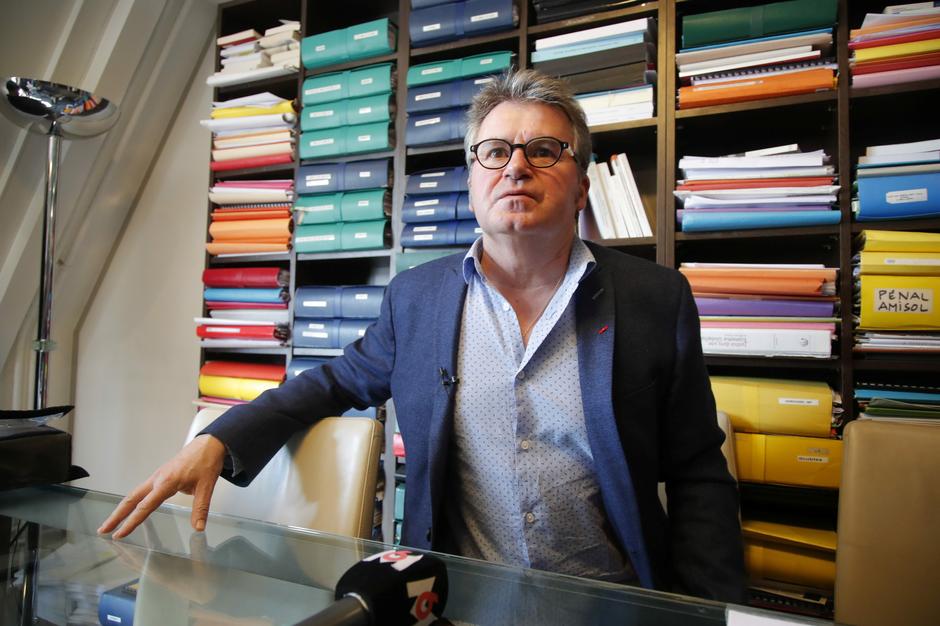French Court Finds Bayer’s Monsanto Liable for Farmer’s Sickness
JUSTICE, HEALTH, ORGANIC, GMO, GENETIC ENGINEERING, 15 Apr 2019
Simon Carraud and Catherine Lagrange | Reuters – TRANSCEND Media Service
11 Apr 2019 – A French court has ruled that Monsanto was liable for the sickness of a farmer who inhaled one of its weedkillers, in another legal setback for the Bayer-owned business over health claims.
In the latest stage of a decade-long legal tussle, the appeals court in Lyon today found in favor of farmer Paul François’ claim that Monsanto’s Lasso weedkiller had made him sick and that the product’s labeling had been inadequate.
François, 55, says he suffered neurological problems, including memory loss, fainting and headaches, after accidentally inhaling Lasso in 2004 while working on his farm.
“Mr François justifiably concludes that the product, due to its inadequate labeling that did not respect applicable regulations, did not offer the level of safety he could legitimately expect,” the court said in its ruling.
The latest verdict, however, did not determine compensation for the farmer, which will now be considered by another court in Lyon.
François is seeking about 1 million euros ($1.1 million) in damages.

French cereal farmer Paul François, head of the Phyto-Victims association, attends a news conference, after the verdict in his appeals trial against U.S. Monsanto firm, in Paris, France, April 11, 2019. REUTERS/Charles Platiau
Bayer, which acquired Monsanto in a $63 billion deal last year, said it was considering its legal options, including an appeal before France’s highest court.
The German chemicals group added that crop-protection products “do not pose a risk for human health if they are used according to the terms of use set out in their regulatory approval”.
Mr François had won rulings against Monsanto in 2012 and 2015 before France’s top court overturned the decisions and ordered the new hearing in Lyon.
“We are all happy to have won but it came at a heavy price,” François told reporters in Paris.
“It’s a big sigh of relief. It’s been 12 years of fighting, 12 years during which I had to put my whole life on hold.”
Lasso was banned in France in 2007 after the product had been withdrawn in some other countries.
It used a different active substance to glyphosate, the chemical contained in Monsanto’s best-selling weedkiller Roundup and the target of lawsuits in the United States over alleged cancer links.
The company has been found liable in two trials in California brought by cancer sufferers who have been awarded tens of millions of dollars in damages. Bayer is appealing against those rulings.
The legal troubles surrounding glyphosate have contributed to Bayer losing about 30 billion euros in market value since last August. The group’s chief executive on Thursday said it was “massively affected” by the litigation.
After the announcement of the decision, Bayer’s shares extended a fall to trade about 1.5 percent down before recovering some of the losses.
($1 = 0.8874 euros)
________________________________________________
Reporting by Catherine Lagrange in Lyon, Simon Carraud and Gus Trompiz in Paris; Additional reporting by Sybille de La Hamaide; Editing by Jane Merriman and David Goodman
Tags: Bayer, GMO, Genetic engineering, Justice, Monsanto, Roundup
DISCLAIMER: The statements, views and opinions expressed in pieces republished here are solely those of the authors and do not necessarily represent those of TMS. In accordance with title 17 U.S.C. section 107, this material is distributed without profit to those who have expressed a prior interest in receiving the included information for research and educational purposes. TMS has no affiliation whatsoever with the originator of this article nor is TMS endorsed or sponsored by the originator. “GO TO ORIGINAL” links are provided as a convenience to our readers and allow for verification of authenticity. However, as originating pages are often updated by their originating host sites, the versions posted may not match the versions our readers view when clicking the “GO TO ORIGINAL” links. This site contains copyrighted material the use of which has not always been specifically authorized by the copyright owner. We are making such material available in our efforts to advance understanding of environmental, political, human rights, economic, democracy, scientific, and social justice issues, etc. We believe this constitutes a ‘fair use’ of any such copyrighted material as provided for in section 107 of the US Copyright Law. In accordance with Title 17 U.S.C. Section 107, the material on this site is distributed without profit to those who have expressed a prior interest in receiving the included information for research and educational purposes. For more information go to: http://www.law.cornell.edu/uscode/17/107.shtml. If you wish to use copyrighted material from this site for purposes of your own that go beyond ‘fair use’, you must obtain permission from the copyright owner.
Read more
Click here to go to the current weekly digest or pick another article:
JUSTICE:
- Int’l Court of Justice Finds Israelis Broke Law by Starving Palestinians of Gaza
- Gaza Tribunal: A Historic Statement in the Shadow of Testimony
- Bertrand Russell's Historic War Crimes Tribunal against the US in Vietnam, 1964-1967
HEALTH:
- FDA Orders COVID ‘Vaccine’ Makers Pfizer and Moderna to Warn Public about Heart Damage Risk
- U.S. Terminates Funding for Polio, H.I.V., Malaria and Nutrition Programs Around the World
- Autism, Made in the USA
ORGANIC, GMO, GENETIC ENGINEERING: